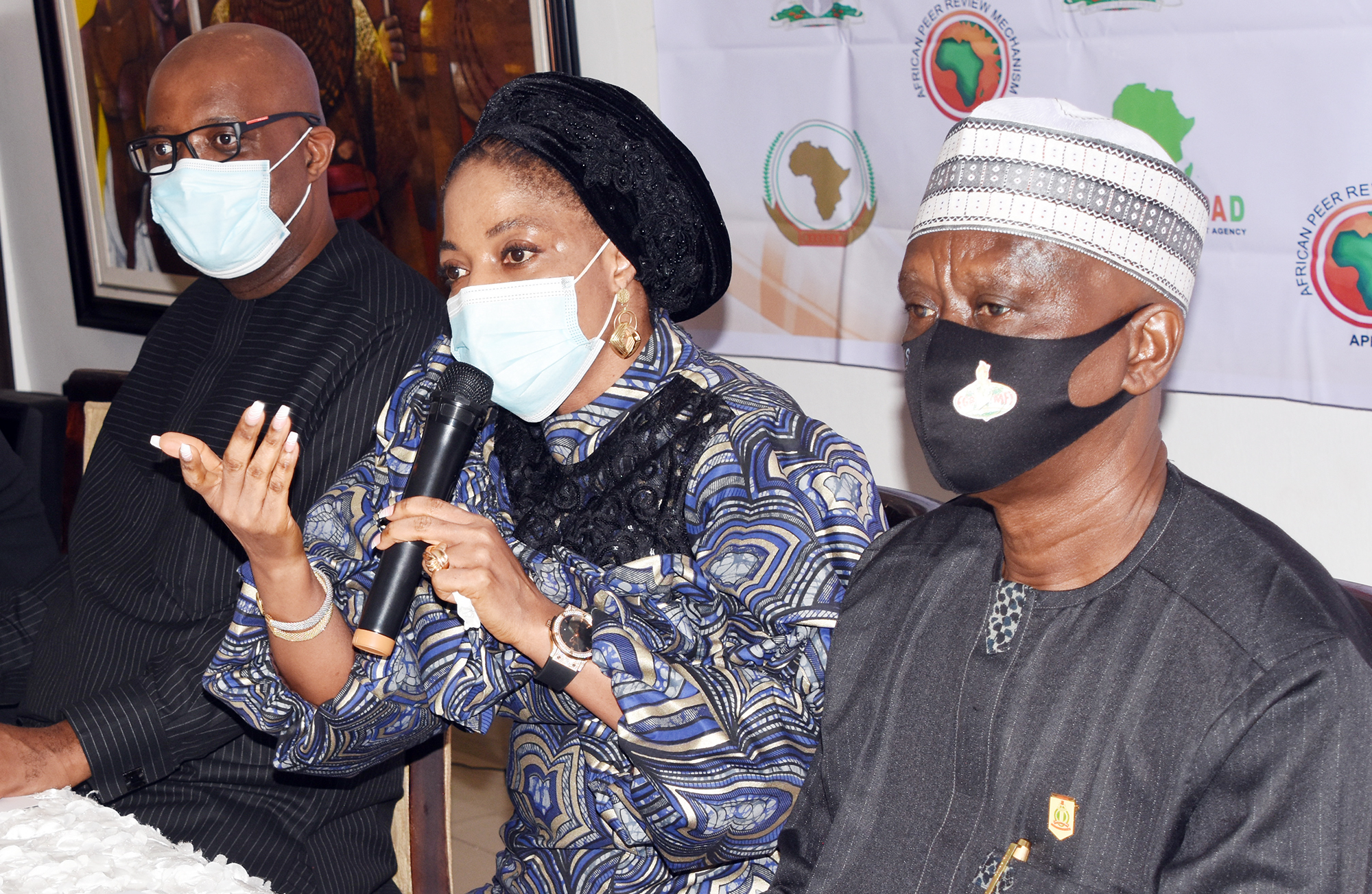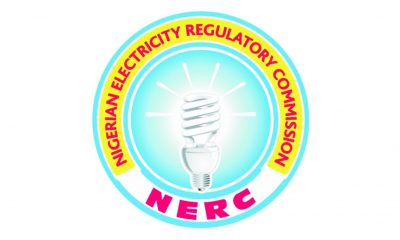Featured
N’Delta Is Not Biafra, UNDEDSS Warns Secessionists

The United Niger Delta Energy Development Security Strategy (UNDEDSS), has warned that the Niger Delta should not be dragged into any secession plan, saying “When necessary, the Niger Delta will be free to decide if it wants to continue to be a part of Nigeria or not.”
The UNDEDSS, in a statement by its Executive Secretary, Tony Uranta, also called on the National Assembly to step down the Water Resources Amendments Bill, saying it was an attempt to steal the Niger Delta’s ancestral lands and waters.
He said, “In pursuant of the Niger Delta’s position during last night’s raucous nationwide virtual meeting of emancipation groups and other relevant delegates, UNDEDSS, hereby, declares that: No one individual or group can claim to be speaking for the six states that comprise the South-South zone and in any way or manner compel the region to be part of Biafra, or Oodua, or any other grouping outside of Nigeria.
“Only PANDEF, led by Chief Edwin Clark, can call for an extraordinary meeting at which such a weighty decision can be taken, if at all.
“We reiterate that going forward; any maps that deem to drag Niger Delta waters and lands into anything other than Nigeria shall be deemed to be intentionally auctioned against the Niger Delta, until an extraordinary meeting of PANDEF declares otherwise.
“When necessary, the Niger Delta will be free to decide if it wants to continue to be a part of Nigeria or not; and, the whole world will then know of its decision either way.
“The ongoing insidious attempt to steal the Niger Delta’s ancestral lands and waters, via the infernally conceived Water Resources Amendments Bill still in the National Assembly, must cease immediately or said action shall be perceived as an act of war by Nigerian politicians (including the so-far impotent Niger Delta politicians in the National Assembly) against Nigeria, especially the Niger Delta.
“The Niger Delta demands that the looting of our peoples’ commonwealth ends forthwith, beginning with an immediate killing off of the latest Ministry of Petroleum’s obnoxiously proposed N700billion for a Turnaround Maintenance (TAM) of Port Harcourt Refinery. UNDEDSS knows that this is a bid to, corruptly loot Niger Delta monies, just as the past putative TAMs have been unmonitored conduits for unabated.
“The Niger Delta demands that the Federal Government immediately convenes a National Security Roundtable before the end of March, to tackle the ongoing insecurity of persons, foods and territories; and, avoid what could end up in Nigeria experiencing a Somalia-cum-Libya here, nationwide.”
Featured
Rivers: Impeachment Moves Against Fubara, Deputy Hits Rock …As CJ Declines Setting Up Panel

The impeachment moves against Rivers State Governor, Sir Siminialayi Fubara, and his deputy, Prof. Ngozi Ordu, by the Rivers State House of Assembly has suffered a setback following the refusal by the State Chief Judge, Hon. Justice Simeon C. Amadi, to set up a seven-man investigate panel to probe the governor and his deputy.
Justice Amadi hinged his decision on subsisting interim court injunctions and pending appeals.
Recall that the Assembly members had earlier requested the Chief Judge to set up a seven-man investigative panel to probe allegations of gross misconduct against Fubara and his deputy.
In a letter dated January 20, 2026, and addressed to the Speaker of the Rivers State House of Assembly, Rt. Hon Martins Amaewhule, the Chief Judge acknowledged receipt of two separate letters from the Assembly, both dated January 16, 2026, requesting the constitution of an investigative panel pursuant to Section 188(5) of the 1999 Constitution of the Federal Republic of Nigeria (as amended).
However, the State Chief Judge explained that his hands were tied by ongoing judicial proceedings directly connected to the impeachment process.
He disclosed that his office had been served with interim injunctions issued on January 16, 2026, arising from two separate suits challenging the actions of the House of Assembly.
The suits include Suit No. OYHC/6/CS/2026, filed by the Deputy Governor against the Speaker and 32 others, and Suit No. OYHC/7/CS/2026, instituted by Governor Fubara against the Speaker and 32 others.
According to him, the interim injunctions expressly restrain him from “receiving, forwarding, considering and or howsoever acting on any request, resolution, articles of impeachment or other documents or communication from the 1st -27th and 31st Defendants for the purpose of constituting a panel to investigate the purported allegations of misconduct against the Claimant/Applicant for seven days.”
Justice Amadi stressed that obedience to court orders is non-negotiable in a constitutional democracy, regardless of personal opinions about such orders.
“Constitutionalism and the Rule of Law are the bedrock of democracy and all persons and authorities are expected to obey subsisting orders of court of competent jurisdiction, irrespective of perception of its regularity or otherwise,” he stated.
To further underscore his position, the Chief Judge cited judicial precedent, referring to the case of Hon. Dele Abiodun v. The Hon. Chief Judge of Kwara State & 3 Ors. (2007), in which the Chief Judge of Kwara State was faulted for proceeding to constitute a panel despite a subsisting court order restraining such action.
Quoting directly from the judgment, Justice Amadi recalled: “I liken the scenario created by the Chief Judge to the position of a chief priest and custodian of an oracle turning round to desecrate the oracle,” a passage he said highlights the sacred duty of judicial officers to uphold the law.
He added that the judiciary, as “the custodian and head of the judicial arm of the State, ought to abide by the laws of the State, nay the land…”
He further noted that the Rivers State House of Assembly had already filed appeals against the interim injunctions at the Court of Appeal, Port Harcourt Division, with notices of appeal served on January 19 and 20, 2026.
“In view of the foregoing, my hand is fettered, as there are subsisting interim orders of injunction and appeal against the said orders.
“I am therefore legally disabled at this point, from exercising my duties under Section 188(5) of the Constitution in the instant,” the Chief Judge declared.
He concluded by expressing hope that “the Rt. Hon. Speaker and the Honourable Members of the Rivers State House of Assembly will be magnanimous enough to appreciate the legal position of the matter.
Featured
Tinubu Hails NGX N100trn Milestones, Urges Nigerians To Invest Locally

President Bola Tinubu yesterday celebrated the Nigerian Exchange Group’s breakthrough into the N100tn market capitalisation threshold, saying Nigeria has moved from an ignored frontier market to a compelling investment destination.
Tinubu, in a statement signed by his Special Adviser on Information and Strategy, Bayo Onanuga, urged Nigerians to increase their investments in the domestic economy, expressing confidence that 2026 would deliver stronger returns as ongoing reforms take firmer root.
He noted that the NGX closed 2025 with a 51.19 per cent return, outperforming global indices such as the S&P 500 and FTSE 100, as well as several BRICS+ emerging markets, after recording 37.65 per cent in 2024.
“With the Nigerian Exchange crossing the historic N100tn market capitalisation mark, the country is witnessing the birth of a new economic reality and rejuvenation,” Tinubu said.
He attributed the stellar performance to Nigerian companies proving they can deliver strong investment returns across all sectors, from blue-chip industrials localising supply chains to banks demonstrating technological innovation.
The President added, “Year-to-date returns have significantly outpaced the S&P 500, the FTSE 100, and even many of our emerging-market peers in the BRICS+ group. Nigeria is no longer a frontier market to be ignored—it is now a compelling destination where value is being discovered.”
Tinubu disclosed that more indigenous energy firms, technology companies, telecoms operators and infrastructure firms are preparing to list on the exchange, a move he said would deepen market capitalisation and broaden economic participation.
He also cited what he described as a sustained decline in inflation over eight months—from 34.8 per cent in December 2024 to 14.45 per cent in November 2025—projecting that the rate would fall below 10 per cent before the end of 2026.
“Indeed, inflation is likely to fall below 10 per cent before the end of this year, leading to improved living standards and accelerated GDP growth. The year 2026 promises to be an epochal year for delivering prosperity to all Nigerians,” he said.
The President attributed the trend to monetary tightening, elimination of Ways and Means financing, and agricultural investments, which he said helped stabilise the naira and ease post-reform pressures.
Nigeria’s current account surplus reached $16bn in 2024, with the Central Bank projecting $18.81bn in 2026, reflecting a trade pattern shift toward exporting more and importing less locally-producible goods.
Non-oil exports jumped 48 per cent to N9.2tn by the third quarter of 2025, with African exports nearly doubling to N4.9tn. Manufacturing exports grew 67 per cent year-on-year in the second quarter.
Foreign reserves have crossed $45bn and are expected to breach $50 billion in the first quarter, giving the CBN ammunition to maintain currency stability and end the volatility that previously fuelled speculation, according to the President.
Tinubu also highlighted infrastructure expansion in rail networks, arterial roads, port revitalisation, and the Lagos-Calabar and Sokoto-Badagry superhighways, alongside improvements in healthcare facilities that are reducing medical tourism costs, and increased university research grants funded through the Nigeria Education Loan Fund.
“Our medicare facilities are improving, and medical tourism costs are declining. Our students benefit from the Nigeria Education Loan Fund, and universities are receiving increased research grants,” he said.
He described nation-building as a process requiring hard work, sacrifices, and citizen focus, pledging to continue working to build an egalitarian, transparent, and high-growth economy catalysed by historic tax and fiscal reforms that came into full implementation from January 1.
Featured
RSG Kicks Off Armed Forces Remembrance Day ‘Morrow …Restates Commitment Towards Veterans’ Welfare

The Rivers State Government has reiterated its commitment towards the welfare of veterans, serving officers and widows of fallen officers in the State.
?
?The Secretary to the Rivers State Government, Dr. Benibo Anabraba, in a statement by ?Head, Information and Public Relations Unit, SSG’s ?Office, ?Juliana Masi, stated this during the Central Planning meeting of the 2026 Armed Forces Remembrance Day in Port Harcourt, yesterday.
?
?Anabraba thanked the Committee for their contributions to the success of the Emblem Appeal Fund Ceremony recently held in the State and called on them to double their efforts so that the State can record resounding success in the remaining activities.
?
?According to him, the remembrance day events will begin with Jumaàt Prayers on Friday, 9th January at the Rivers State Central Mosque, Port Harcourt Township, while a Humanitarian Outreach/Family and Community Day will be hosted on Saturday, 10th January, by the wife of the governor, Lady Valerie Siminalayi Fubara, for widows and veterans.
?”On Sunday, 11th January, an Interdenominational Church Thanksgiving Service will hold at St. Cyprian Anglican Church, Port Harcourt Township while the Grand-finale Wreath- Laying Ceremony will hold on Thursday, 15th January at the Isaac Boro Park Cenotaph, Port Harcourt”, he said.
?
?The SSG noted that one of the highlights of the events is the laying of wreaths by Governor Siminalayi Fubara and Heads of the Security Agencies.
?
-

 Sports5 days ago
Sports5 days agoTinubu Lauds Super Eagles’ after AFCON bronze triumph
-

 Sports5 days ago
Sports5 days agoAFCON: Lookman gives Nigeria third place
-

 Sports5 days ago
Sports5 days agoFulham Manager Eager To Receive Iwobi, Others
-

 Sports5 days ago
Sports5 days ago“Mikel’s Influence Prevent Some Players Invitation To S’Eagles Camp”
-

 Sports5 days ago
Sports5 days agoMan of The Match award Excites Nwabali
-

 Sports5 days ago
Sports5 days agoRemo, Ikorodu set for NPFL hearing, Today
-

 Sports5 days ago
Sports5 days agoPolice Games: LOC inspects facilities in Asaba
-

 Niger Delta5 days ago
Niger Delta5 days agoINC Polls: Ogoriba Pledges To Continuously Stand For N’Delta Rights … Picks Presidential Form













